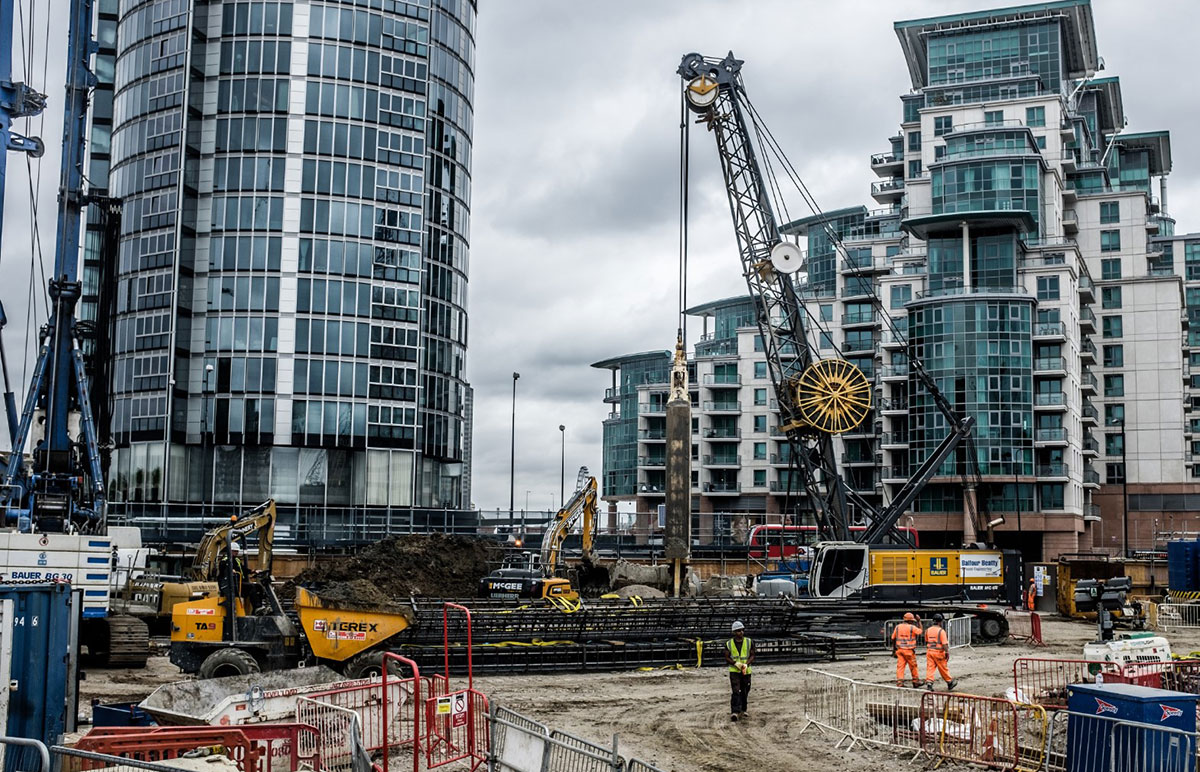Everything about Geotheta
Everything about Geotheta
Blog Article
The smart Trick of Geotheta That Nobody is Discussing
Table of ContentsGet This Report about GeothetaThe Basic Principles Of Geotheta Get This Report about GeothetaGeotheta for DummiesThe smart Trick of Geotheta That Nobody is Discussing

They carry out website examinations, accumulate examples, execute laboratory tests, and evaluate data to assess the suitability of the ground for building jobs - Geotechnical Engineers. Based on their searchings for, geotechnical engineers give suggestions for structure layout, incline security, preserving frameworks, and reduction of geotechnical dangers. They work together with other experts, such as designers, structural designers, and building and construction groups, to make certain that geotechnical considerations are integrated right into the overall job layout and execution
By analyzing the actions and residential properties of dirt and rock, they can determine prospective geotechnical hazards such as landslides, soil settlement, or slope instability. Their proficiency aids protect against failings or accidents that could jeopardize lives and residential or commercial property. Here are some detailed responsibilities and responsibilities of a geotechnical designer: Site Investigation: Geotechnical designers conduct site examinations to collect data on subsurface problems.
They translate the information to understand the buildings and habits of the dirt and rock, including their toughness, permeability, compaction attributes, and groundwater problems. Geotechnical Evaluation and Style: Geotechnical engineers evaluate the data collected throughout website examinations to analyze the security and suitability of the site for building jobs. They perform geotechnical computations and modeling to evaluate aspects such as bearing capacity, settlement, incline stability, side earth pressures, and groundwater flow.
Getting My Geotheta To Work
Structure Style: Geotechnical engineers play a vital function in designing structures that can securely support the designated framework. They examine the dirt conditions and tons needs to identify the ideal foundation kind, such as superficial foundations (e.g., footings), deep structures (e.g (https://geotheta.godaddysites.com/f/why-geotechnical-engineers-are-your-projects-best-friends)., piles), or specialized techniques like dirt enhancement. They think about factors such as negotiation limitations, birthing ability, and soil-structure interaction to develop optimum structure styles
They evaluate building and construction strategies, display website tasks, and conduct area evaluations to validate that the style referrals are adhered to. If unexpected geotechnical issues develop, they evaluate the scenario and supply recommendations for removal or changes to the layout. Threat Evaluation and Mitigation: Geotechnical designers examine geotechnical hazards and risks connected with the project site, such as landslides, liquefaction, or dirt disintegration.

Cooperation and Interaction: Geotechnical engineers work closely with various other experts associated with a job, such as engineers, structural designers, and building groups. Effective interaction and cooperation are vital to integrate geotechnical factors to consider into the general project style and building process. Geotechnical engineers supply technological proficiency, solution queries, and make sure that geotechnical needs are satisfied.
How Geotheta can Save You Time, Stress, and Money.
Below are some kinds of geotechnical designers: Structure Engineer: Foundation engineers concentrate on designing and assessing foundations for frameworks. They evaluate the soil conditions, load requirements, and site qualities to figure out one of the most ideal structure kind and layout, such as superficial structures, deep foundations, or specialized techniques like stack foundations.
They assess the variables affecting slope security, such as dirt residential properties, groundwater conditions, and slope geometry, and develop strategies to prevent incline failings and alleviate dangers. Earthquake Engineer: Earthquake engineers concentrate on analyzing and designing frameworks to stand up to seismic forces. They evaluate the seismic risk of a site, evaluate dirt liquefaction capacity, and develop seismic layout standards to guarantee the safety view it and strength of structures during quakes.
They do field testing, collect examples, and evaluate the collected information to characterize the soil homes, geologic developments, and groundwater problems at a site. Geotechnical Instrumentation Designer: Geotechnical instrumentation engineers concentrate on monitoring and determining the habits of dirt, rock, and structures. They mount and keep instrumentation systems that keep an eye on elements such as soil settlement, groundwater levels, slope motions, and architectural displacements to examine performance and offer early warnings of prospective problems.
Some Known Facts About Geotheta.
They carry out examinations such as triaxial tests, loan consolidation tests, straight shear tests, and permeability tests to collect information for geotechnical evaluation and design. Geosynthetics Engineer: Geosynthetics engineers concentrate on the layout and application of geosynthetic materials, such as geotextiles, geogrids, and geomembranes. They use these materials to enhance soil security, enhance inclines, provide drainage services, and control erosion.
They have a tendency to be investigatory people, which implies they're intellectual, reflective, and curious. They are interested, systematic, rational, analytical, and rational. A few of them are also social, implying they're kind, generous, cooperative, patient, caring, valuable, compassionate, tactful, and friendly. Does this seem like you? Take our totally free profession test to find out if geotechnical engineer is one of your leading job suits.
In the office environment, geotechnical designers make use of specialized software application tools to execute estimations, produce layouts, and evaluate data. They prepare reports, testimonial job specifications, connect with clients and staff member, and coordinate project tasks. The office setup supplies a conducive setting for research study, analysis, and cooperation with other specialists associated with the task.
Get This Report on Geotheta
They frequently check out task sites to perform site examinations, evaluate geotechnical conditions, and collect data for evaluation. These check outs involve taking a trip to various places, sometimes in remote or tough terrains. Geotechnical designers may do dirt tasting, conduct tests, and screen building tasks to guarantee that the geotechnical elements of the job are being applied appropriately.
Geotechnical engineers also work in specialized geotechnical research laboratories. Geotechnical research laboratory designers function thoroughly in these atmospheres, managing testing equipment, operating tools, and recording data.
Report this page